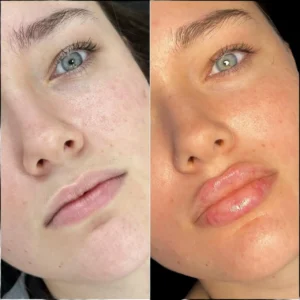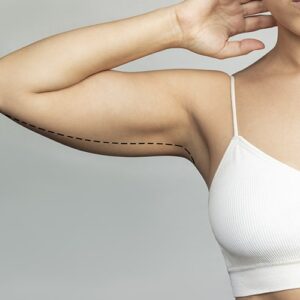In a society that constantly presents curated beauty ideals and perfection-driven standards, body image has become more than just a fleeting thought—it’s a deep-rooted emotional experience. People of all genders are increasingly affected by how their bodies are perceived, both by others and by themselves. This pressure has fueled a rising demand for aesthetic procedures that help bridge the gap between personal self-image and the appearance individuals aspire to achieve. Among these procedures, liposuction surgery stands out—not just for its physical transformation, but for the psychological shift it often catalyzes.
The Emotional Weight of Body Image
Body image is far more complex than the number on a scale or the reflection in a mirror. It’s interwoven with self-esteem, mental well-being, and even daily performance in both personal and professional environments. The constant comparison culture—fueled by social media filters, influencer lifestyles, and entertainment media—can distort realistic expectations of what our bodies should look like.
For many, no amount of dieting or exercise can address stubborn fat deposits that cling to specific areas of the body. This can lead to feelings of failure, frustration, and inadequacy, even when a person leads an otherwise healthy lifestyle. When traditional efforts yield no significant changes, individuals often seek alternatives—not out of vanity, but as a way to reclaim confidence and agency over their appearance. This is where modern cosmetic procedures begin to play a pivotal role.
Shifting Perceptions of Cosmetic Enhancement
Gone are the days when plastic surgery was shrouded in secrecy and stigma. Today, aesthetic procedures are widely accepted and openly discussed. From celebrities to everyday professionals, more people are embracing cosmetic interventions as a way to align their outer appearance with how they feel inside.
Liposuction, once considered a luxury for the elite, has now become accessible and more refined thanks to advancements in medical technology and surgical techniques. With less invasive options, quicker recovery times, and more natural-looking results, the procedure is attracting a broader and more diverse demographic. What was once seen as an extreme measure is now viewed as a practical, controlled solution for body sculpting and refinement.
The Psychological Impact of Physical Change
One of the most underrated aspects of body contouring is its psychological benefit. Patients often report improved self-esteem, increased social confidence, and even greater motivation to maintain a healthy lifestyle post-procedure. These shifts are not merely aesthetic—they can ripple into multiple aspects of a person’s life.
For instance, someone who previously avoided social gatherings, swimwear, or professional opportunities due to body insecurities may find themselves participating more freely after undergoing a transformation. This renewed confidence doesn’t stem from the surgery alone, but from the validation of taking control over their appearance and investing in their personal well-being.
Moreover, it’s essential to highlight that liposuction is not a quick fix or a substitute for fitness. Instead, it serves as a complement to a healthy lifestyle, often helping individuals jumpstart their wellness journey with greater optimism and momentum. It’s the internal shift—the redefined self-image—that truly redefines a person’s life trajectory.
Empowerment Through Informed Choices
One of the most powerful effects of this surgical advancement is the sense of empowerment it offers. The modern patient is informed, intentional, and more involved in the decision-making process than ever before. With access to a wide range of resources, reviews, consultations, and success stories, individuals are no longer passive recipients of cosmetic care; they are active participants.
This empowerment is crucial because it helps eliminate outdated narratives that cosmetic surgery is purely about aesthetics or superficial beauty. Instead, it reframes these procedures as deeply personal, health-conscious, and confidence-driven decisions. People choose liposuction not just to look different, but to feel aligned with their ideal self-image—something that no external opinion can measure.
Additionally, clinics and surgeons now emphasize holistic consultations, ensuring candidates understand both the physical limitations and emotional implications of surgery. Ethical practitioners prioritize mental readiness, realistic expectations, and long-term satisfaction—values that were once secondary in the beauty industry.
Looking Forward: The New Definition of Confidence
As cosmetic surgery becomes more common and accepted, the very definition of beauty and confidence is evolving. It’s no longer about fitting into a mold, but about embracing individuality and making empowered choices to look and feel your best. Liposuction surgery is just one of the many tools available today to support that journey—not because beauty needs fixing, but because confidence thrives when people feel in control of their image.
The rise of personalized body transformations signals a shift in cultural consciousness—one that no longer shames aesthetic change, but celebrates it when it is thoughtful, informed, and aligned with self-love. In this new age of beauty, transformation isn’t about chasing perfection—it’s about honoring the version of yourself that brings peace, power, and pride.
Final Word
We live in an era where how we feel on the inside matters just as much as how we look on the outside. Liposuction surgery represents more than a procedure—it embodies a growing movement of body autonomy, self-acceptance, and emotional healing. As the line between physical transformation and emotional empowerment continues to blur, it becomes clear that the real change starts not with the mirror, but with the mindset. And sometimes, choosing change is the most confident decision of all.







